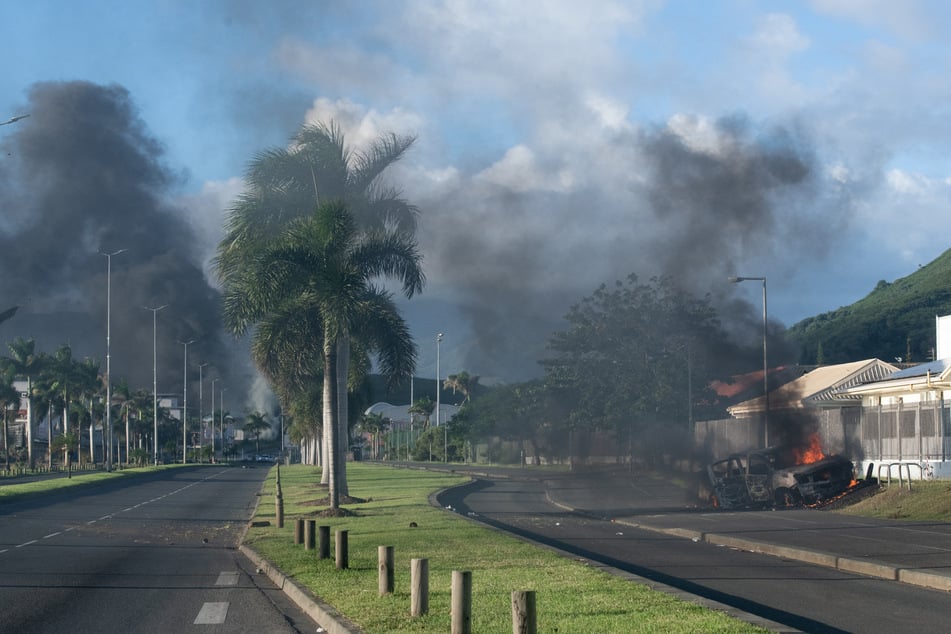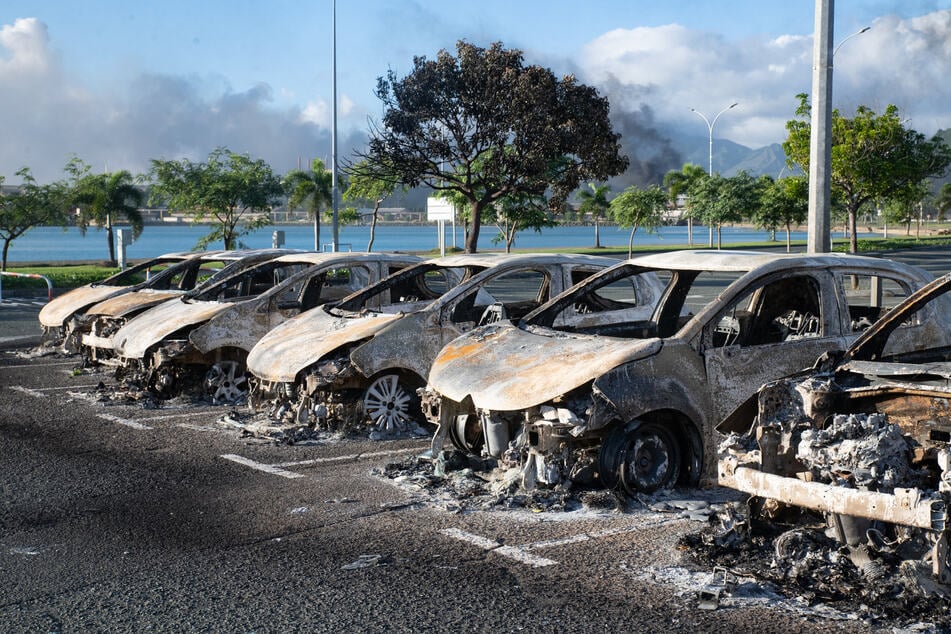France bans TikTok and sends troops into New Caledonia amid Indigenous uprising over voting law
Noumea, New Caledonia - France deployed troops to New Caledonia's ports and international airport, banned TikTok and imposed a state of emergency Thursday after three nights of clashes that have left four dead and hundreds wounded.

Pro-independence, largely Indigenous protests against a French plan to impose new voting rules on its former colony have spiraled into the deadliest violence since the 1980s, with a police officer among several killed by gunfire.
On major thoroughfares, the torched detritus amassed over four days of unrest was scattered amid fist-size hunks of rock and cement that appeared to have been flung during riots.
Armored vehicles roved the city's palm-lined boulevards, usually thronged with tourists.
Fearful locals set up make-shift roadblocks – piling wooden pallets, wheelbarrows, bed frames, plastic jerrycans, tree fronds, and scraps of fencing across the streets.
As part of a sweeping French response, security forces placed five people it suspects of being at the forefront of the unrest under house arrest, according to a statement by the high commission, which represents the French state in New Caledonia.
More than 200 people have been arrested since the clashes broke out and an "air bridge" would be established for reinforcements, it added
TikTok banned for questionable reasons

French Prime Minister Gabriel Attal told a crisis ministerial meeting that troops had been deployed to secure ports and the international airport, which has been closed to commercial flights.
TikTok had been banned because it was being used by "rioters," he said. By Thursday morning, AFP could identify fewer than 20 accounts related to the violence on the platform.
New Caledonia, which lies between Australia and Fiji, has remained largely under French control since it was colonized by France in the second half of the 19th century, but is recognized by the UN as a Non-Self-Governing Territory.
While it has on three occasions rejected independence in referendums, independence retains strong support among the Kanak people, whose ancestors have lived on the islands for thousands of years.
France's controversial new voting law for New Caledonia

As people took to the streets, France's National Assembly, 10,600 miles away, voted on Tuesday to allow residents who have lived in New Caledonia for 10 years to cast ballots. The reform must still be approved by a joint sitting of both houses of the French parliament.
Pro-independence forces point out that would dilute the vote of Kanaks, who make up about 41% of the population.
Those favoring the reform argue voter lists have not been updated since 1998 – depriving island residents who arrived after of being able to participate in provincial polls.
French President Emmanuel Macron has said lawmakers would vote to definitively adopt the constitutional change by the end of June unless New Caledonia's opposing sides agree on a new text that "takes into account the progress made and everyone's aspirations."
Pro- and anti-independence parties issued a joint statement calling for "calm and reason" to return to the archipelago, adding that "we are destined to keep living together."
Cover photo: Delphine Mayeur / AFP

